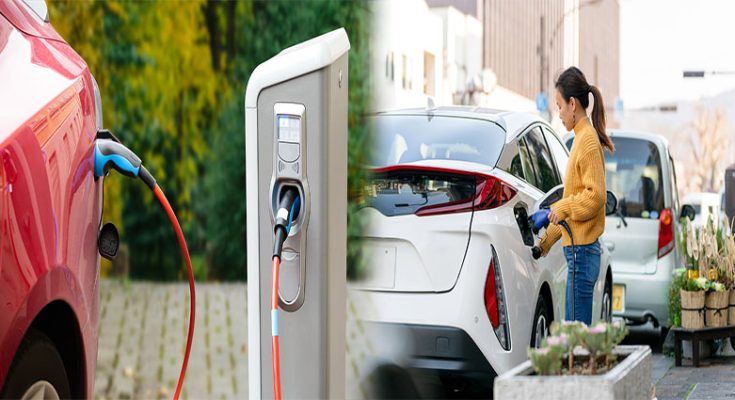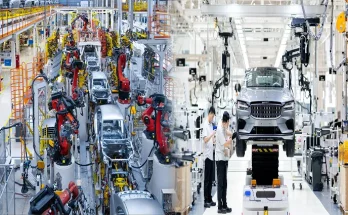The environmental impact of transportation has become a pressing issue in the global efforts to combat climate change and reduce air pollution. In this context, electric vehicles (EVs) have emerged as a promising alternative to traditional gasoline-powered vehicles, offering a range of environmental benefits that make them a sustainable choice for the future of mobility. By comparing the environmental impact of electric vehicles to their gasoline-powered counterparts, we can highlight the significant advantages of EVs in terms of reducing greenhouse gas emissions and mitigating environmental degradation.
1. Reduction in Greenhouse Gas Emissions
One of the primary environmental benefits of electric vehicles is their contribution to reducing greenhouse gas emissions. Unlike gasoline-powered vehicles that rely on internal combustion engines, electric vehicles produce zero tailpipe emissions when operating on electricity. By transitioning from gas-powered cars to electric vehicles, we can significantly decrease the release of carbon dioxide (CO2) and other harmful pollutants that contribute to global warming and climate change.
2. Improved Air Quality
Electric vehicles offer a direct solution to improving air quality in urban areas and combating the harmful effects of vehicle emissions on public health. Gasoline-powered vehicles emit pollutants such as nitrogen oxides (NOx), particulate matter, and volatile organic compounds that contribute to smog, respiratory illnesses, and environmental degradation. In contrast, electric vehicles produce zero tailpipe emissions, resulting in cleaner air and a healthier environment for communities.
3. Energy Efficiency and Resource Conservation
Electric vehicles are inherently more energy-efficient than gasoline-powered vehicles, leading to lower energy consumption and reduced reliance on finite fossil fuels. EVs can convert a higher percentage of the electricity from the grid into vehicle propulsion, minimizing energy waste and enhancing overall efficiency. By promoting the transition to electric mobility, we can maximize the utilization of renewable energy sources and promote sustainable energy practices to conserve resources for future generations.
4. Lifecycle Emissions Reduction
In addition to operational emissions reductions, electric vehicles demonstrate lower lifecycle emissions compared to gasoline-powered vehicles when considering the entire supply chain and vehicle life cycle. Factors such as manufacturing, battery production, and end-of-life disposal are taken into account to assess the overall environmental impact of each vehicle type. Studies have shown that electric vehicles can achieve a lower carbon footprint over their lifetime, especially as the electricity grid becomes cleaner and renewable energy sources are integrated.
5. Mitigation of Noise Pollution
Electric vehicles not only offer environmental benefits in terms of emissions reduction but also contribute to mitigating noise pollution in urban environments. The quiet operation of electric motors compared to the noise generated by internal combustion engines improves the overall quality of life for residents and enhances the tranquility of urban settings. Electric vehicles help create quieter and more peaceful communities by reducing the noise levels associated with traditional gasoline-powered vehicles.
The environmental benefits of electric vehicles compared to gasoline-powered vehicles highlight the transformative potential of electric mobility in addressing climate change, improving air quality, and promoting sustainable transportation solutions. By embracing the widespread adoption of electric vehicles and supporting the transition to clean, renewable energy sources, we can pave the way for a more sustainable and environmentally conscious mobility ecosystem. The shift towards electric vehicles represents a crucial step towards a greener and healthier future, where transportation plays a key role in preserving the planet for generations to come.





